Table of contents
In the current wedding industry, gender-neutral wedding phrases (i.e. language that is not limited to the binary of man/woman) are becoming increasingly prevalent. These terms aren’t solely important for LGBTQ+ couples and individuals; they’re also good practice to get into as the wedding business and society evolves toward a more inclusive environment.
So why not use language that includes all lovers? Without further ado, let’s discover language to use during your all-inclusive wedding with our list of gender neutral wedding terms you should know.
Nearlywed

When seeking to replace “bride and/or groom” or “bride and/or groom to be,” “nearlywed” is an excellent term to utilize. It denotes that someone is in a relationship and is not gender-specific. Of course, you can always say “engaged” or any of the other terms we’ve mentioned below, but because “newlywed” is already in use, “nearlywed” is a terrific alternative to use before any gay wedding.
Fiancé

This gender neutral wedding term is certainly familiar to you, but you may not be aware that it is already gender-neutral. Despite the fact that there is an additional spelling for a woman (i.e. “fiancée”), whether spoken or written, “fiancé” can be a gender-neutral noun. And it doesn’t have to suggest gender-identity when employed unless the speaker specifies gender. While cisgender and heterosexual couples can and should use this terminology to boost usage and make them more common, they also serve to safeguard LGBTQ+ or non-binary couples from being outed in public.
Partner(s), Significant Other(s), Couple
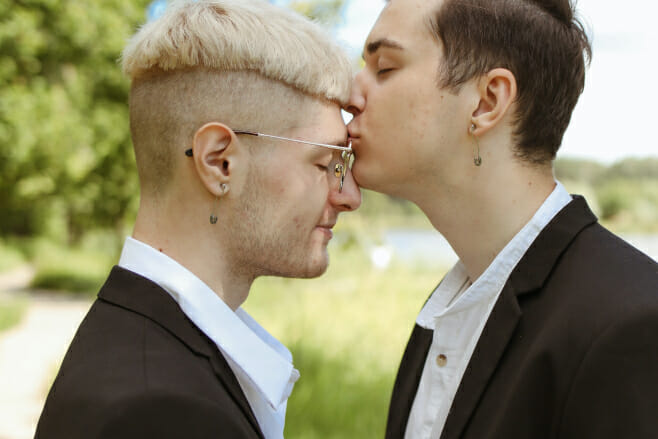
“Partner,” “couple,” and “significant other” are excellent ways to refer to a person or individuals in a relationship without mentioning gender. The difference between these and the phrase “nearlywed” is that they don’t imply marriage. This distinguishes them from the phrases “boyfriend” and “girlfriend,” as well as “bride,” “groom,” “husband,” and “wife.” While we’re all for “defining the partnership” when the time comes, it’s not up to you to tell another couple where they should be in their relationship. These terms are perfect for any type of relationship at an early stage, whether they don’t believe in marriage or are unable to be legally married for another reason.
Newlywed

“Newlywed” is another phrase that is gender-neutral by definition. It’s similar to “nearlywed,” but it’s used after the wedding rather than before. It can, at least temporarily, replace the phrases “wife” and “husband” by specifying newly-married individuals! “Newlywed” is an excellent example of a term that is already widely used and thus a simple transition to gender-neutral language. While knowing the phrases for non-binary or gender non-conforming couples and individuals is helpful, it’s also easy to employ inclusive language regardless of the gender identity of a couple.
Spouse
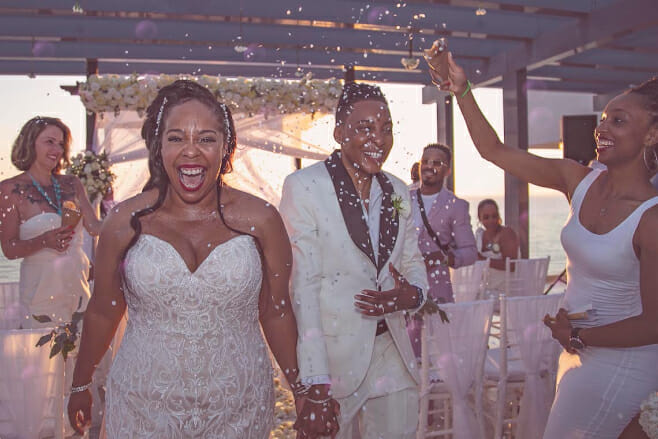
“Spouse” is similar to “newlywed” in that it refers to married people. The main distinction is that it can refer to couples who have been married for any length of time, as opposed to “newlywed,” which solely refers to couples who have recently married. Using “spouse” instead of “husband” or “wife” is a simple method to get into the habit of using inclusive language. If you’re sending an email to a group of married friends to invite them to a dinner party, it’s far easier to state “spouses are invited” rather than “husbands and/or wives.”
Bachelorx
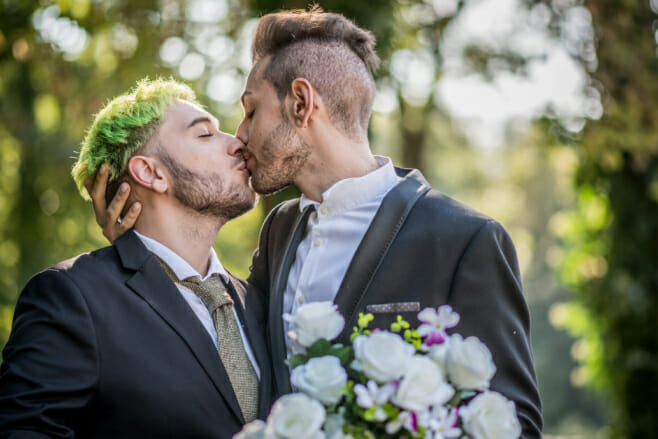
Bachelorx (pronounced bachelor-ex) is a phrase that is interchangeable with bachelor and bachelorette. The suffix “x” is an often utilized element to make terms more exclusive by removing traditionally gendered elements and replacing them with the “x” — in this case, the “ette” in bachelorette. Gender norms and gendered conduct have a long history at bachelor and bachelorette parties, but that’s a topic for another article. Changing the vocabulary we use to describe these events is the first of many steps toward ensuring that they have a more inclusive future, which includes the reality that gender non-binary people can have a good time with their wedding party.
Best Person/Person of Honor
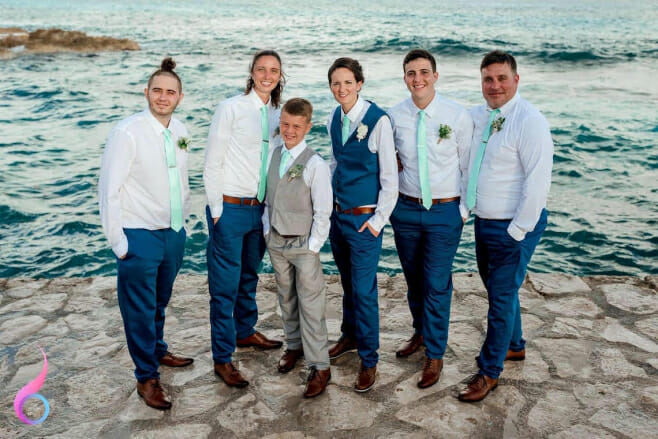
“Best person” or “person of honor” are fantastic gender neutral wedding terms to replace “best man” or “maid of honor” when referring to a trustworthy bridal party member. Other non-traditional titles for this role include “best woman” and “men of honor,” both of which we support, but substituting “person” for any term that would imply gender allows for even greater diversity and respect. We don’t want to remove the term totally because they are the people you’ll rely on throughout your wedding. Finding a language that is compatible with you and your loved ones is the future of inclusive wedding language.
Wedding Party/Attendants
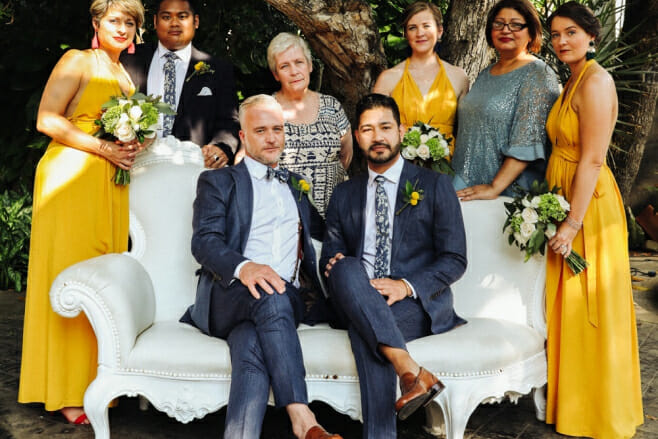
Replace the terms “bridesmaids” and “groomsmen” with “attendants” or just refer to them as members of your wedding party. Because not every nearlywed prefers to have all of their wedding party attendants be of the same gender, referring to them as “attendants” or just “wedding party” in general can relieve some strain and give them the opportunity to mix it up. These are some of the most significant persons who are a part of your wedding celebration, just like the person of honor or best man.
Mx.

Many non-binary and/or gender fluid people may prefer the title “Mx” (pronounced “mix”) to the gender-specific titles “Miss,” “Mr,” and “Mrs.” As a result, this term may be handy for people who don’t want to utilize those titles. It’s also useful in instances where a person’s gender identity does not need to be expressed or is really unknown. Consider all the networking emails you’ve written where the recipient’s name isn’t gender-specific more “To whom it may concern.” Gender neutral wedding terms has a lot of applications outside of ceremonies and relationships.
If you are planning a wedding, you may already have members of your wedding party, or guests on your guest list who use gender-neutral terms you may already be aware of. Use their preferences when guiding naming conventions for your wedding, or refer back to this guide whenever you need assistance. Sensitivity way as we work towards an inclusive future, no matter the type of wedding event you’re hosting.
Want to learn more about planning your dream destination wedding? Follow the button below to discover our streamlined planning process:
